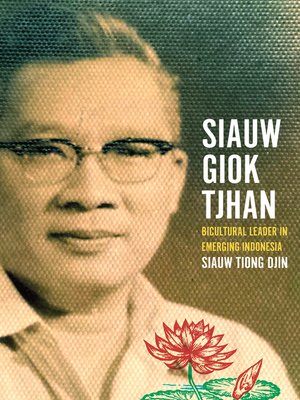Siauw Giok Tjhan
ebook ∣ Bicultural leader in emerging Indonesia · Herb Feith Translation Series
By Siauw Tiong Djin

Sign up to save your library
With an OverDrive account, you can save your favorite libraries for at-a-glance information about availability. Find out more about OverDrive accounts.
Find this title in Libby, the library reading app by OverDrive.



Search for a digital library with this title
Title found at these libraries:
| Library Name | Distance |
|---|---|
| Loading... |
SiauwGiok Tjhan (1914-1981) was one of the most influential Chinese Indonesianpolitical leaders active in the early decades following Indonesia'sindependence from 1945 to 1965.
Hisparticipation in politics at this time set him apart from the majority ofChinese who were regarded as non-political and business-minded. When Indonesianindependence was declared in 1945, Siauw was appointed a member of the newRepublic's legislative and executive bodies. He remained a high profile memberof parliament until the end of 1965. A leader and co-founder of Baperki (theConsultative Body of Indonesian Citizenship), the largest organisation ofChinese Indonesians, from 1954 to 1965, he had widespread support from both peranakanand totok Chinese.
When the balance of power tilted to the right afterOctober 1965, Baperki was attacked and banned. Siauw and many other Baperki leaders were arrested and interned withouttrial for twelve years. It was not until after the fall of President Soehartoin 1998 that his place in modern Indonesian history could be properlyrecognised. Hemade important contributions in relation to an inclusive Indonesiancitizenship, propagation of a solution to the 'minority problem', which hedefined as the integration approach, better known today as multiculturalism, andthe proposal that the Chinese be accepted as one of the 'sukus' or ethnicgroups of Indonesian nation.







